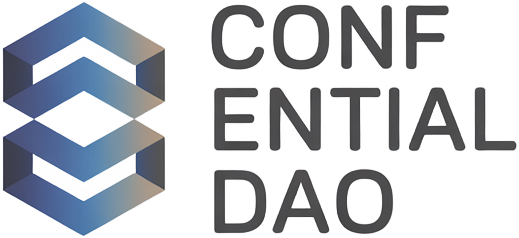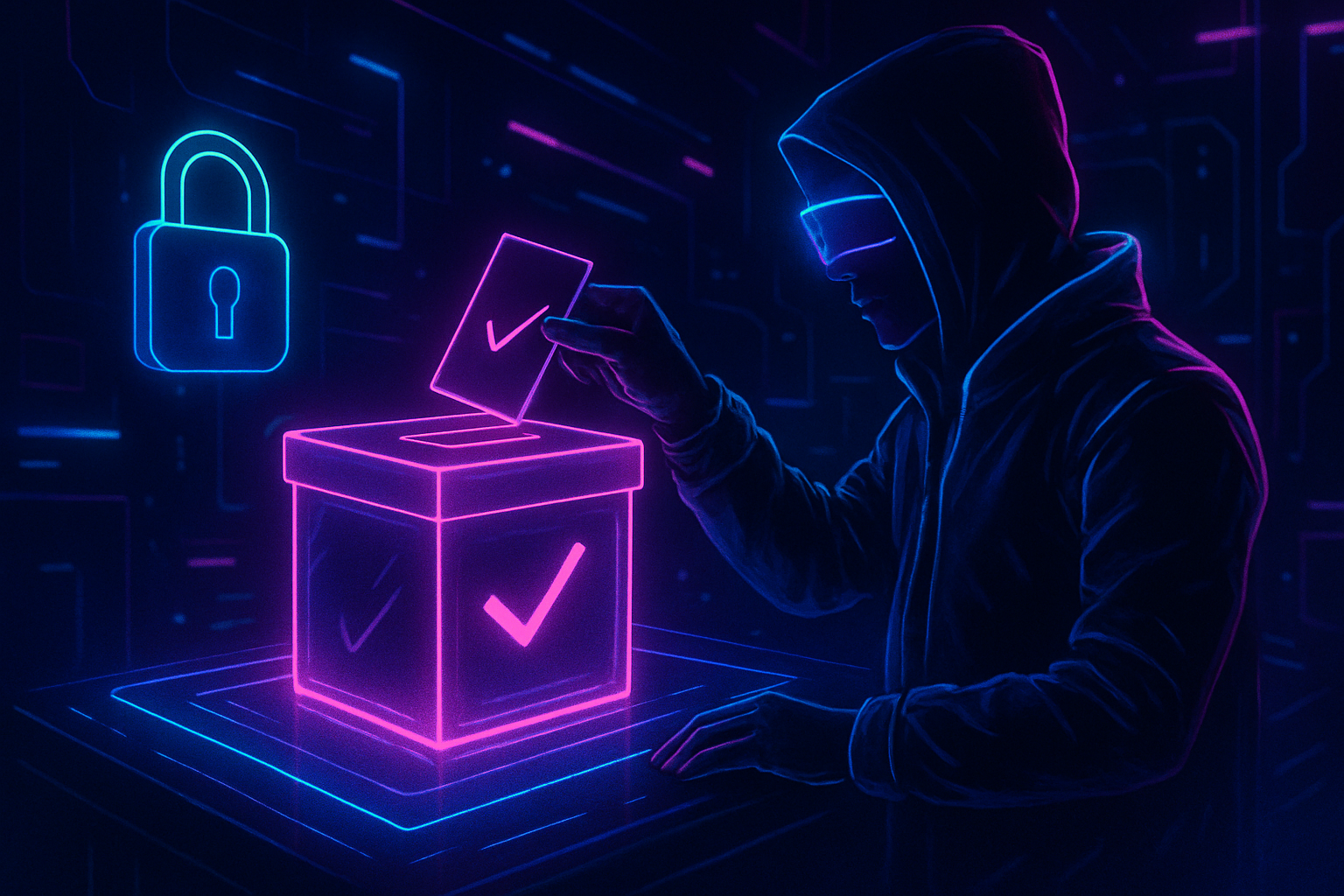
Decentralized Autonomous Organizations (DAOs) are transforming collective decision-making by leveraging blockchain for transparent and distributed governance. Yet, as DAOs grow in scale and influence, the public nature of on-chain voting has emerged as a double-edged sword. While transparency is fundamental, it can inadvertently expose voters to social pressure, manipulation, and privacy breaches. This is where private DAO voting becomes not just a technical upgrade, but a governance imperative.
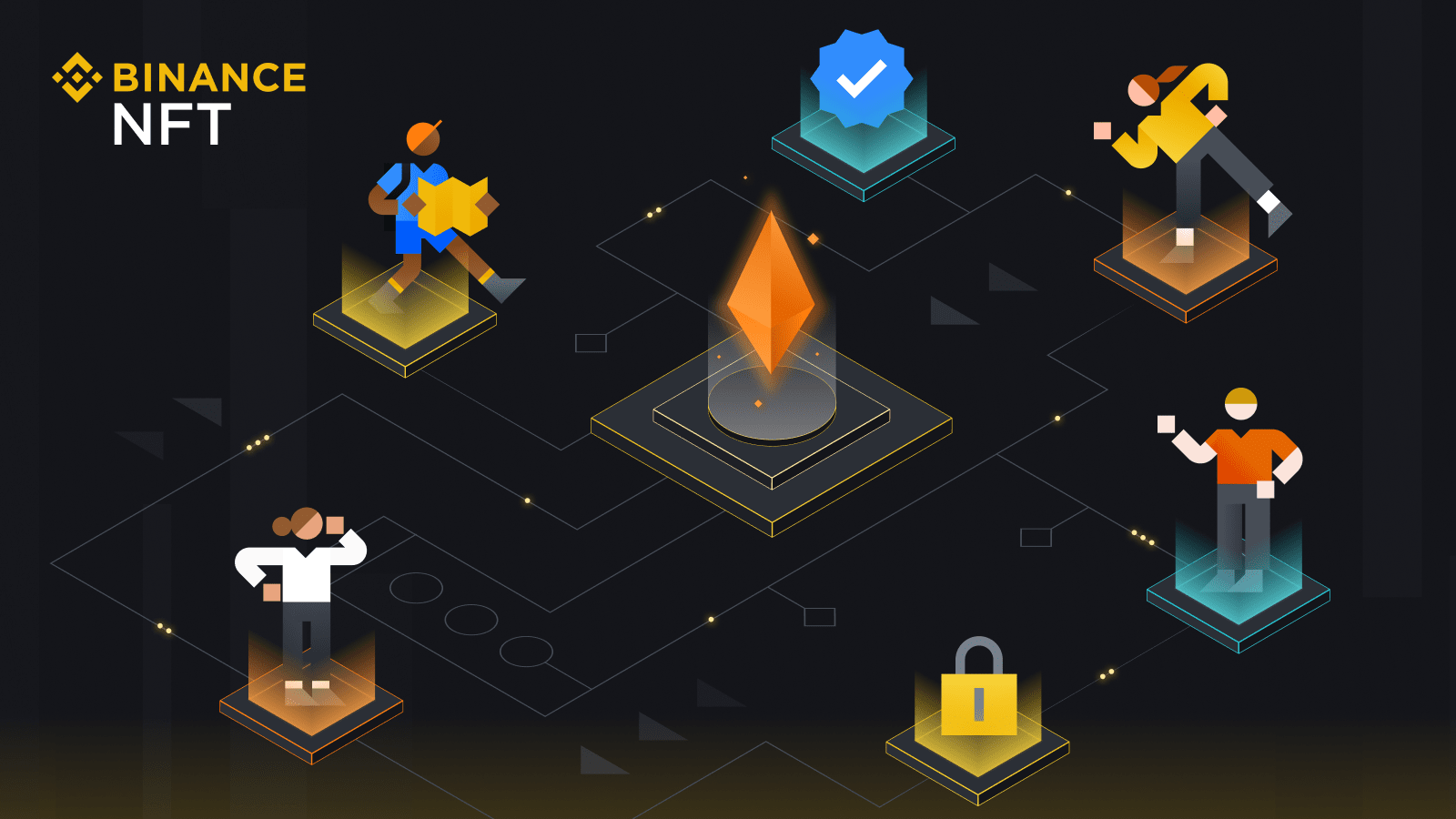
Why Privacy Matters in DAO Governance
On-chain voting, the backbone of many DAOs, records every ballot on an immutable public ledger. This ensures accountability, but also means every member’s vote is visible to all participants and, in many cases, the broader public. According to ScienceDirect, this transparency can suppress honest participation, as members may fear backlash or ostracism for dissenting votes. The result: groupthink, strategic voting, and even outright manipulation through vote buying or coercion.
Recent research from Universität Bern and the Cryptology ePrint Archive highlights that the absence of privacy in DAO voting can lead to:
- Social pressure on minority voters
- Easy identification of voting patterns by whales or colluding groups
- Potential for vote buying and coercion
- Reduced voter turnout due to privacy concerns
As noted by pse.dev, private voting prevents corruption and enables more honest participation, unlocking the full potential of decentralized governance.
How Private Voting Mechanisms Work
Modern cryptographic primitives are at the core of confidential DAO governance. Here are the leading approaches:
Leading Cryptographic Approaches for Private DAO Voting
-
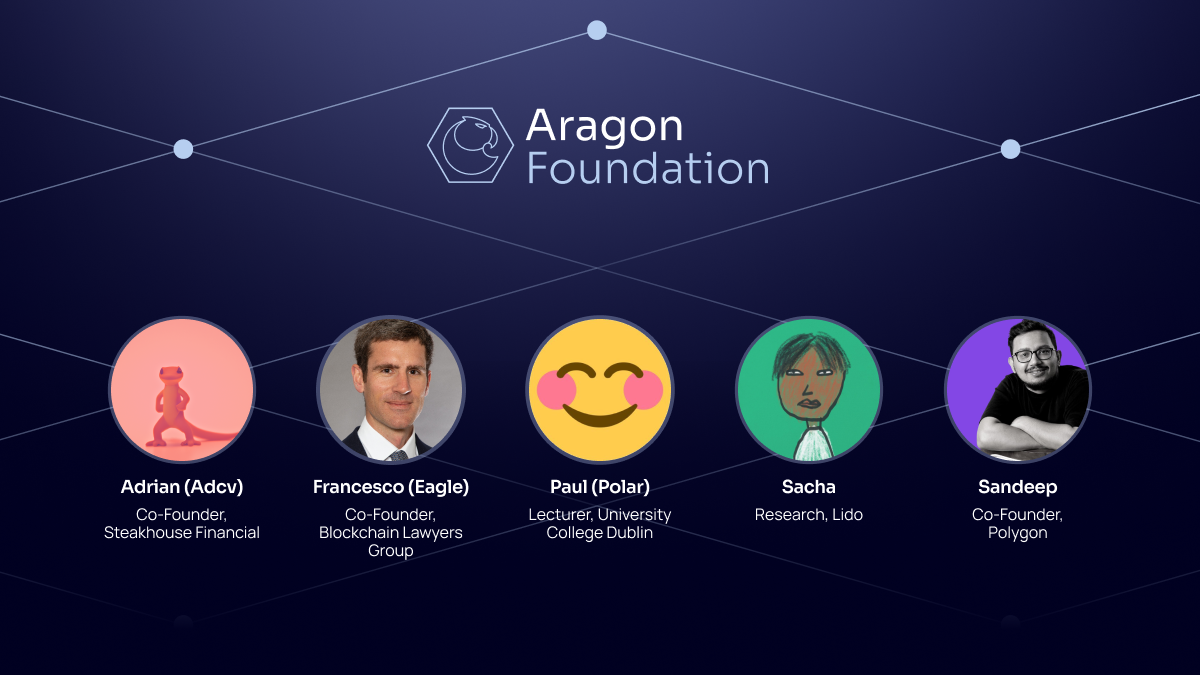
Zero-Knowledge Proofs (ZKPs): ZKPs enable voters to prove their participation or the validity of their vote without revealing their identity or specific choice. This approach is being actively developed by Aragon in collaboration with Aztec, providing confidential on-chain voting while maintaining verifiability.
-

Threshold Encryption: This method encrypts votes during the voting period and decrypts them only after the vote ends, preventing early result leaks and vote manipulation. Snapshot utilizes Shutter Network’s threshold encryption for its shielded voting feature, widely adopted by DAOs for off-chain governance.
-
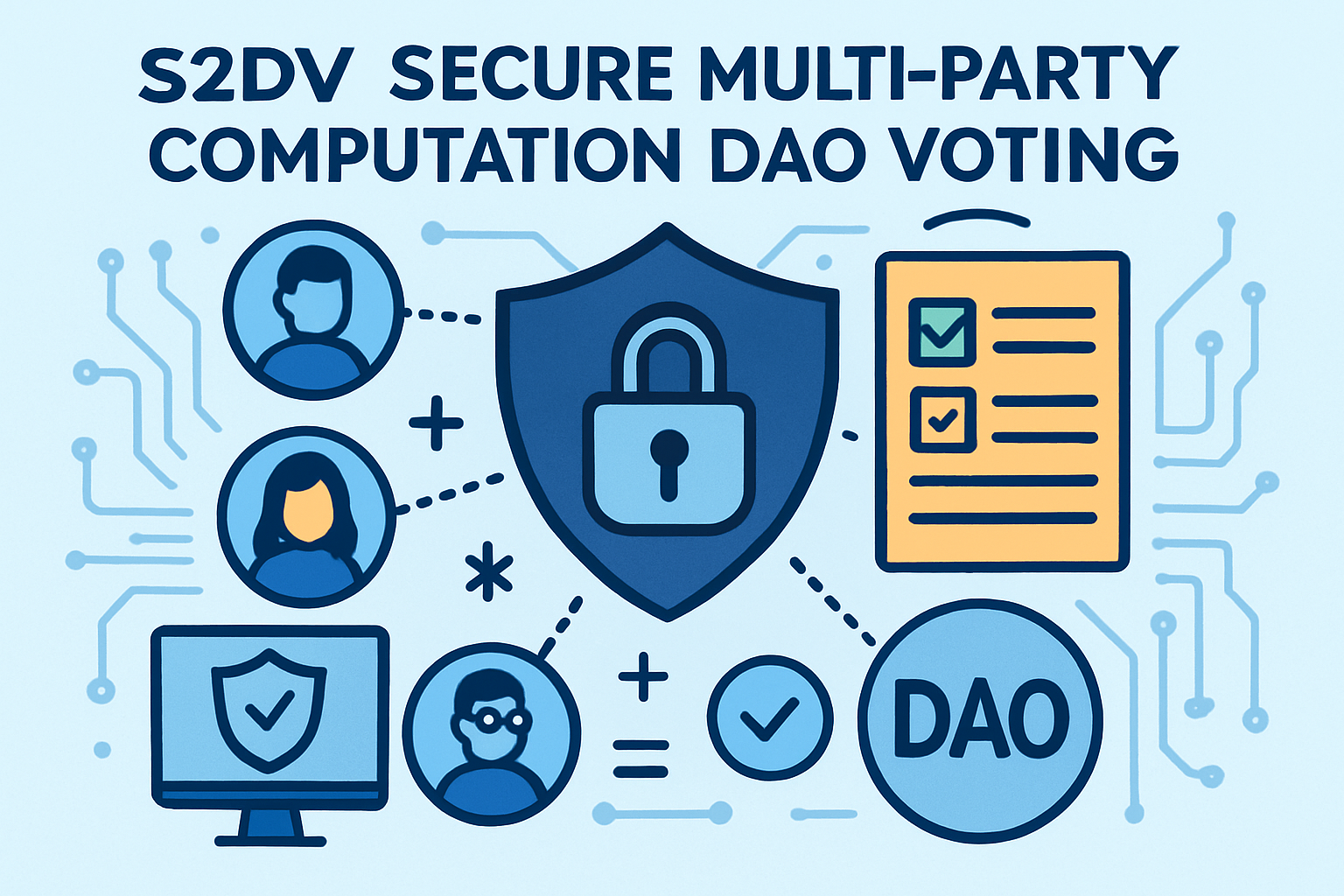
Secure Multi-Party Computation (MPC): MPC allows multiple parties to jointly tally votes without exposing individual ballots, ensuring both privacy and correctness. This technique underpins several academic and experimental DAO voting protocols, such as those explored in the S2DV: Scalable and Secure DAO Voting research.
-
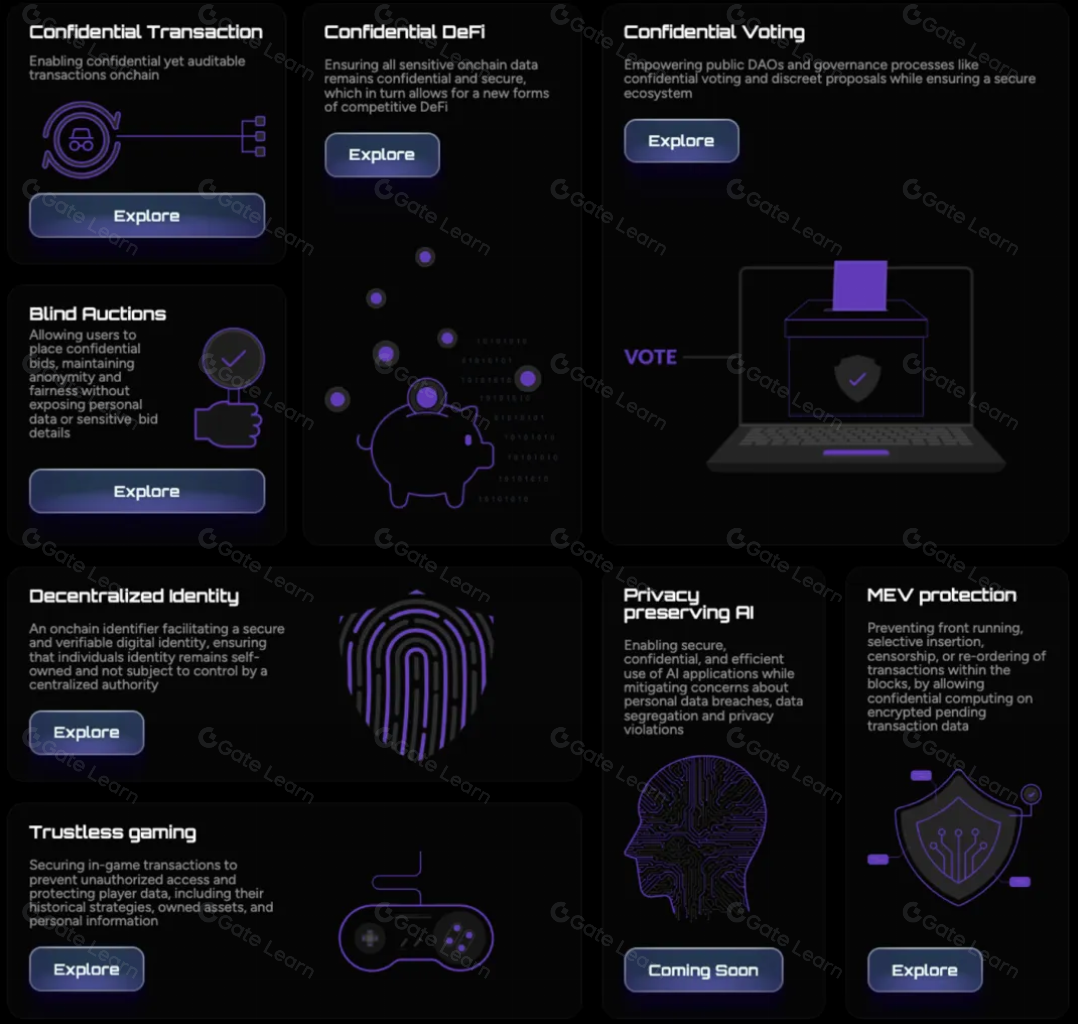
Homomorphic Encryption: Homomorphic encryption permits computation on encrypted votes, enabling accurate tallying without decrypting individual selections. Projects like Zama are researching its application for confidential DAO voting, aiming for both privacy and auditability.
Zero-Knowledge Proofs (ZKPs): ZKPs allow a voter to prove their eligibility and that their vote is valid, without revealing the actual vote or their identity. This makes it possible to verify the integrity of the process without sacrificing privacy.
Threshold Encryption: In this model, votes are encrypted during the voting period and only decrypted once the process concludes. This prevents real-time vote monitoring and reduces bias or manipulation based on early results. Snapshot’s shielded voting, powered by Shutter Network, is a real-world example of this approach (blog.premia.blue).
Secure Multi-Party Computation (MPC): MPC enables the aggregation of votes without any single party learning the individual ballots. Instead, the result is computed collectively, ensuring both privacy and verifiable accuracy.
“Permanent private voting is one of the most requested features in DAO governance. ” – Shutter Blog
Benefits for DAO Members and Governance Integrity
Integrating private voting mechanisms isn’t just about privacy for privacy’s sake. The real-world impact on DAO health and decision-making is significant:
Key Benefits of Private DAO Voting Mechanisms
-
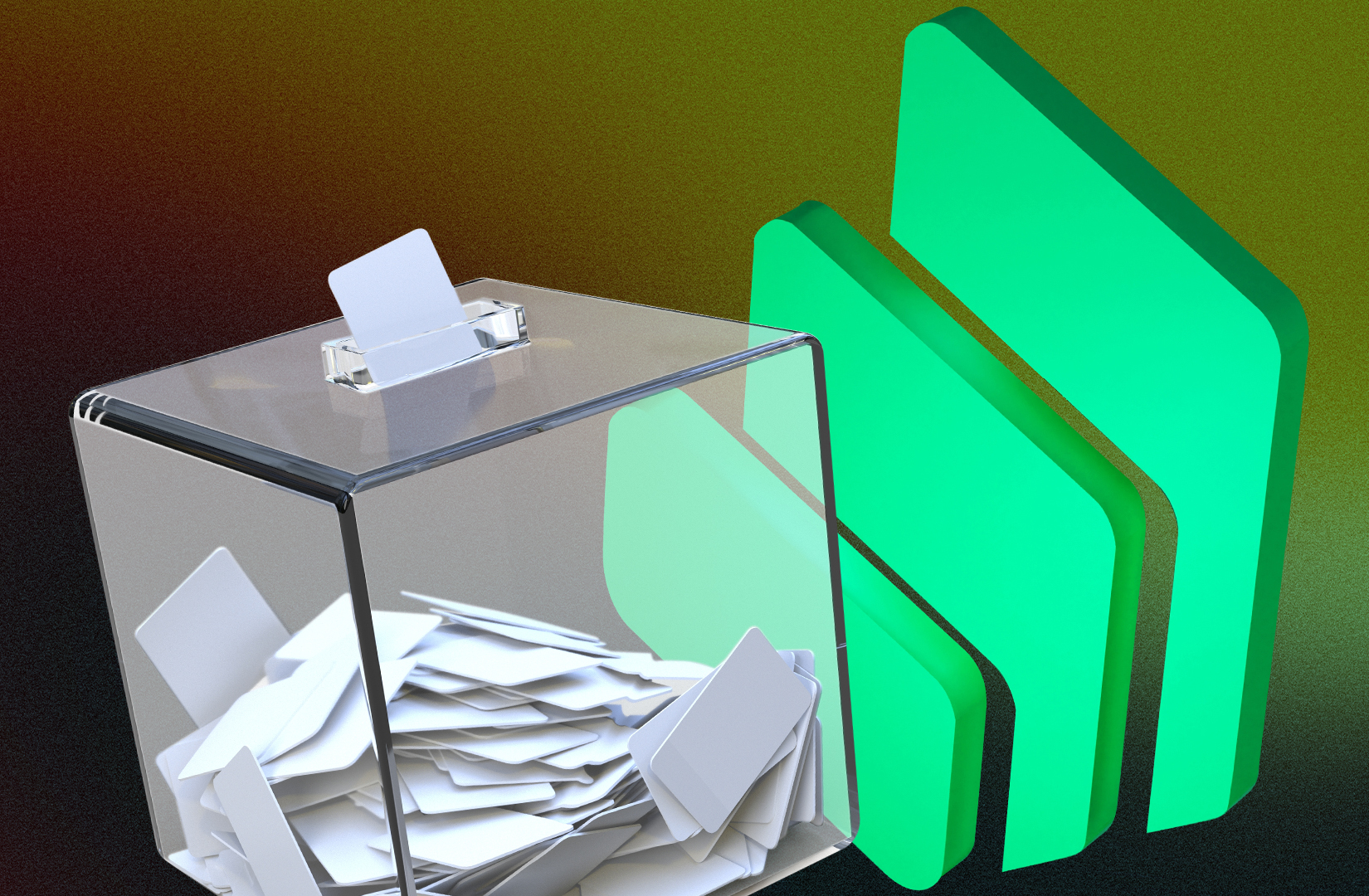
Protects Voter Privacy and Reduces Social Pressure: By keeping individual votes confidential, private voting mechanisms prevent members from facing social repercussions or external influence, enabling more honest participation.
-
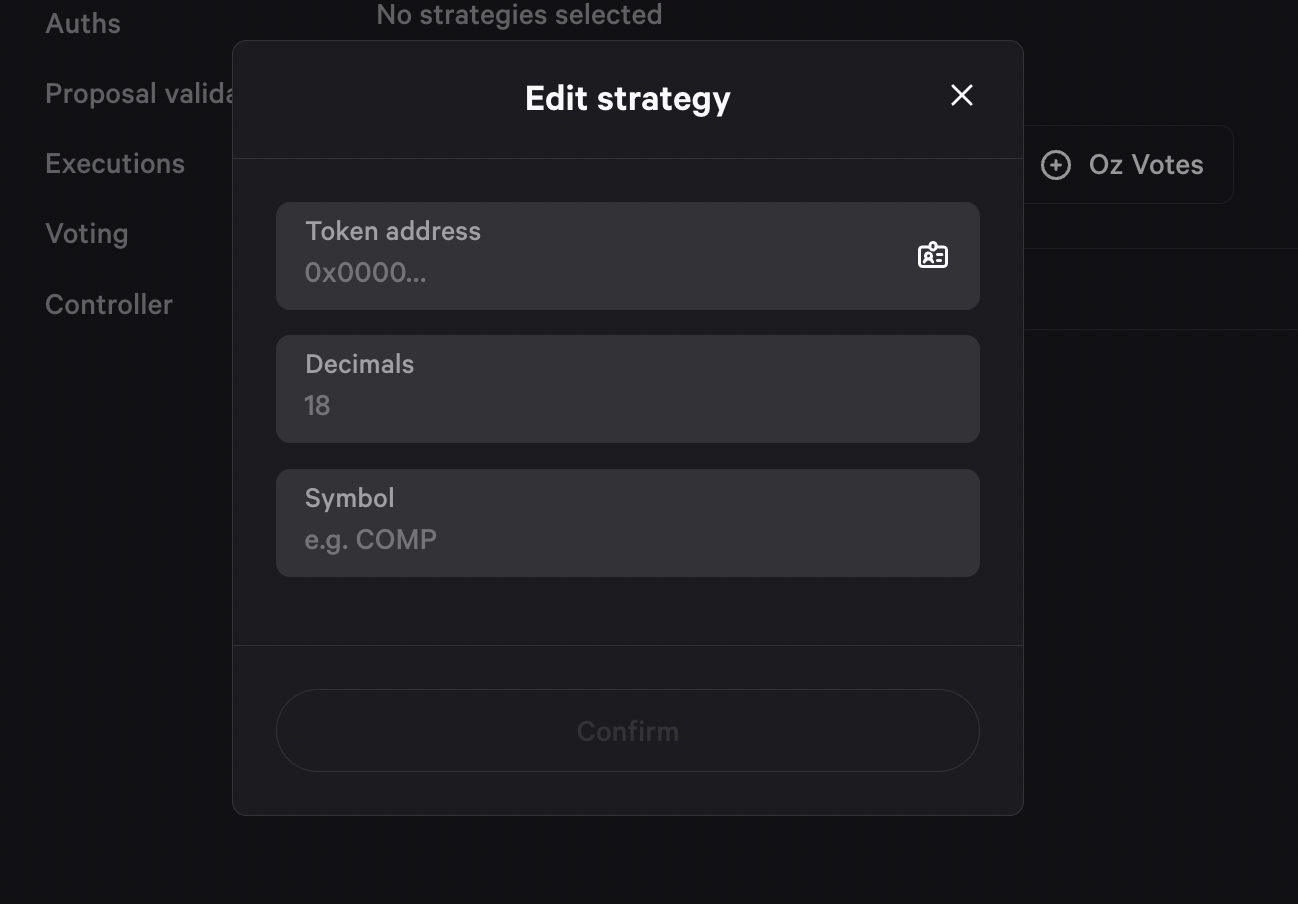
Mitigates Vote Manipulation and Coercion: Concealing votes until the end of the voting period (as implemented in Snapshot’s shielded voting) helps deter vote buying, collusion, and coercion, preserving the integrity of governance outcomes.
-
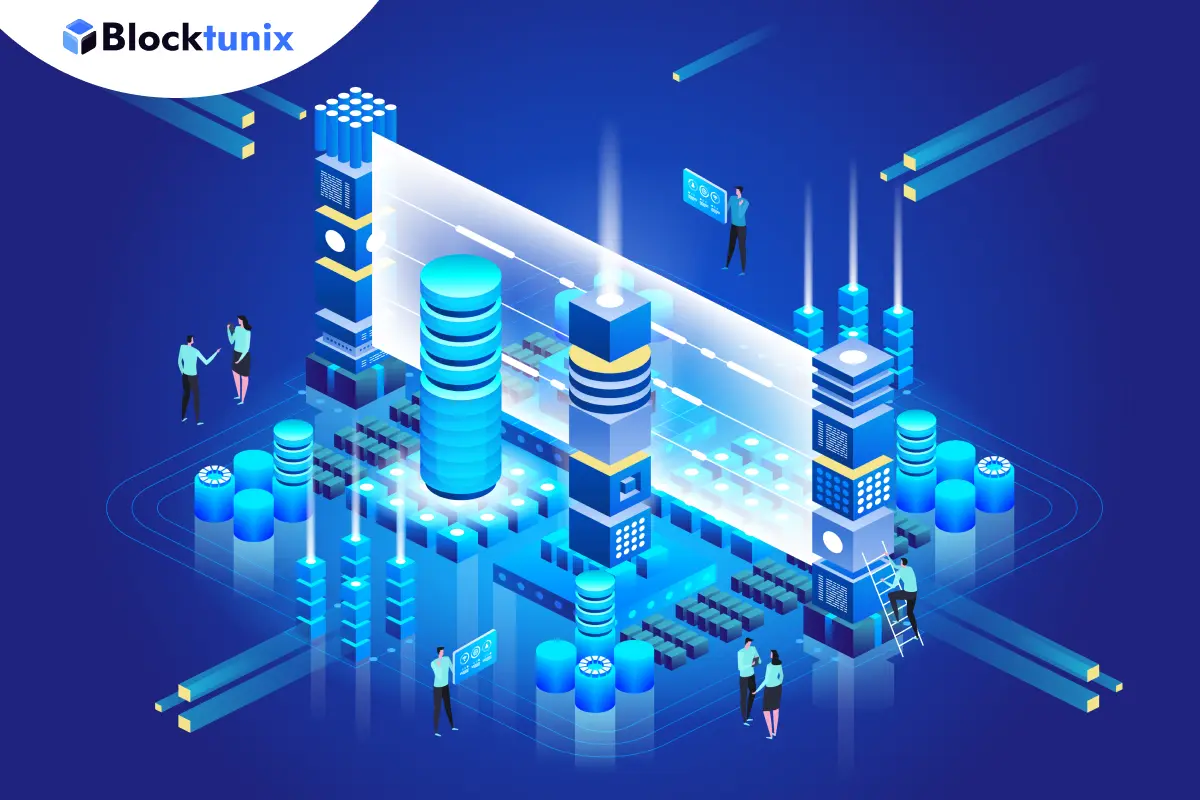
Promotes Decentralization and Equal Participation: Private voting ensures that influential members or groups cannot unduly sway outcomes, supporting a more decentralized and democratic decision-making process within DAOs.
-
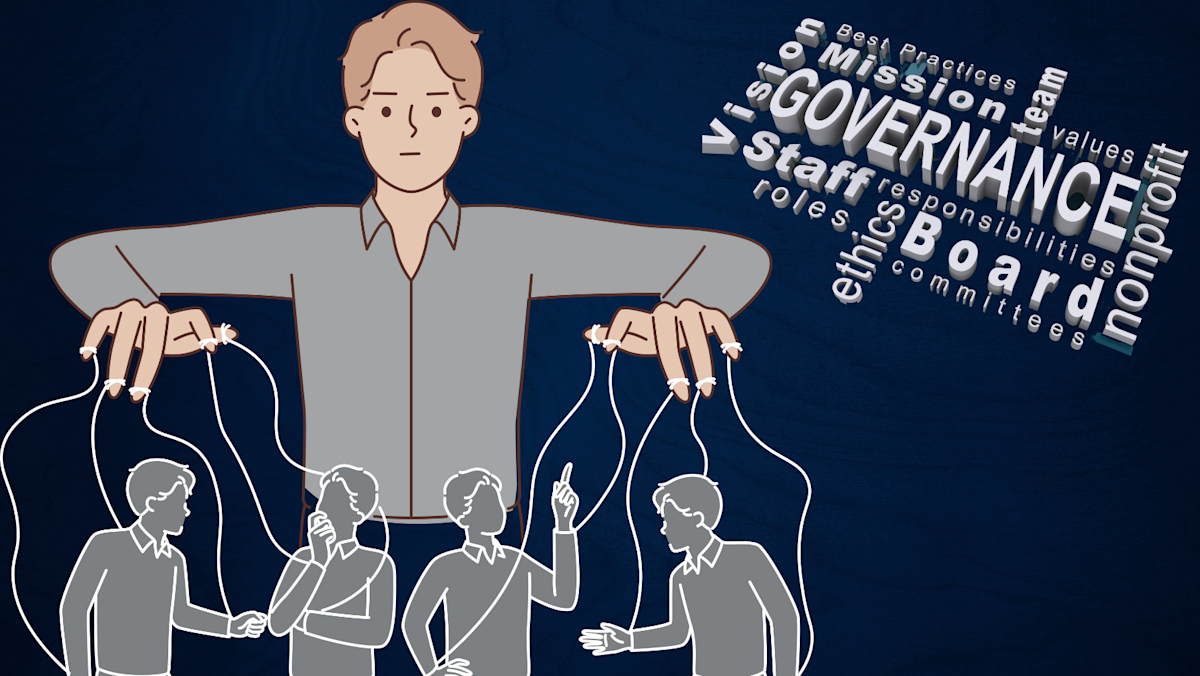
Enables Honest and Unbiased Decision-Making: When voters are assured of privacy, they are more likely to express their true preferences, leading to governance decisions that better reflect the collective will of the community.
-

Enhances Security and Verifiability: Advanced cryptographic techniques like zero-knowledge proofs (used in Aragon and Aztec collaborations) and threshold encryption (used by Shutter Network) allow for secure, verifiable vote tallying without exposing individual choices.
Encourages Honest Participation: When members know their choices can’t be traced back to them, they’re more likely to vote according to their true beliefs and values, rather than simply following the crowd.
Reduces Manipulation: Shielded ballots make it far more difficult for whales or colluding actors to identify swing voters or target individuals for vote buying.
Promotes Decentralization: By protecting minority voices and preventing undue influence from prominent figures, private voting mechanisms keep DAOs closer to their democratic ideals.
The demand for privacy is not theoretical. As Vitalik Buterin and major DAO platforms like Aragon have noted, robust private voting is essential for the next generation of secure governance DAOs (blog.premia.blue).
However, implementing confidential DAO governance is not without its challenges. The technical complexity of integrating advanced cryptographic voting mechanisms like ZKPs or MPC can be a hurdle for many organizations. DAOs must invest in both technical talent and rigorous audit processes to ensure that privacy-preserving protocols do not inadvertently introduce vulnerabilities or hinder verifiability. As the ScienceDirect analysis emphasizes, the balance between transparency and privacy is a persistent governance question: too much opacity can erode trust, while excessive transparency can chill participation.
Real-World Adoption and Lessons Learned
Despite these complexities, a growing number of DAOs and blockchain projects are pioneering real-world solutions. Snapshot’s shielded voting, for example, has seen broad adoption by major protocols seeking to minimize bias and protect voter anonymity. The system’s use of threshold encryption ensures that all ballots remain confidential until the voting window closes, at which point the aggregate results are revealed. This approach has proven effective in reducing manipulation and increasing voter turnout, especially for high-stakes proposals (blog.premia.blue).
Similarly, the DeFROST proposal and Aragon’s partnership with Aztec are pushing the boundaries of cryptographic voting DAOs. These initiatives are not only demonstrating the feasibility of private voting at scale, but also setting new standards for verifiability and user experience in decentralized autonomous organizations privacy.
Key Considerations for DAO Builders
For DAOs evaluating a shift to private voting, several best practices are emerging from the field:
Best Practices for Implementing Private DAO Voting
-
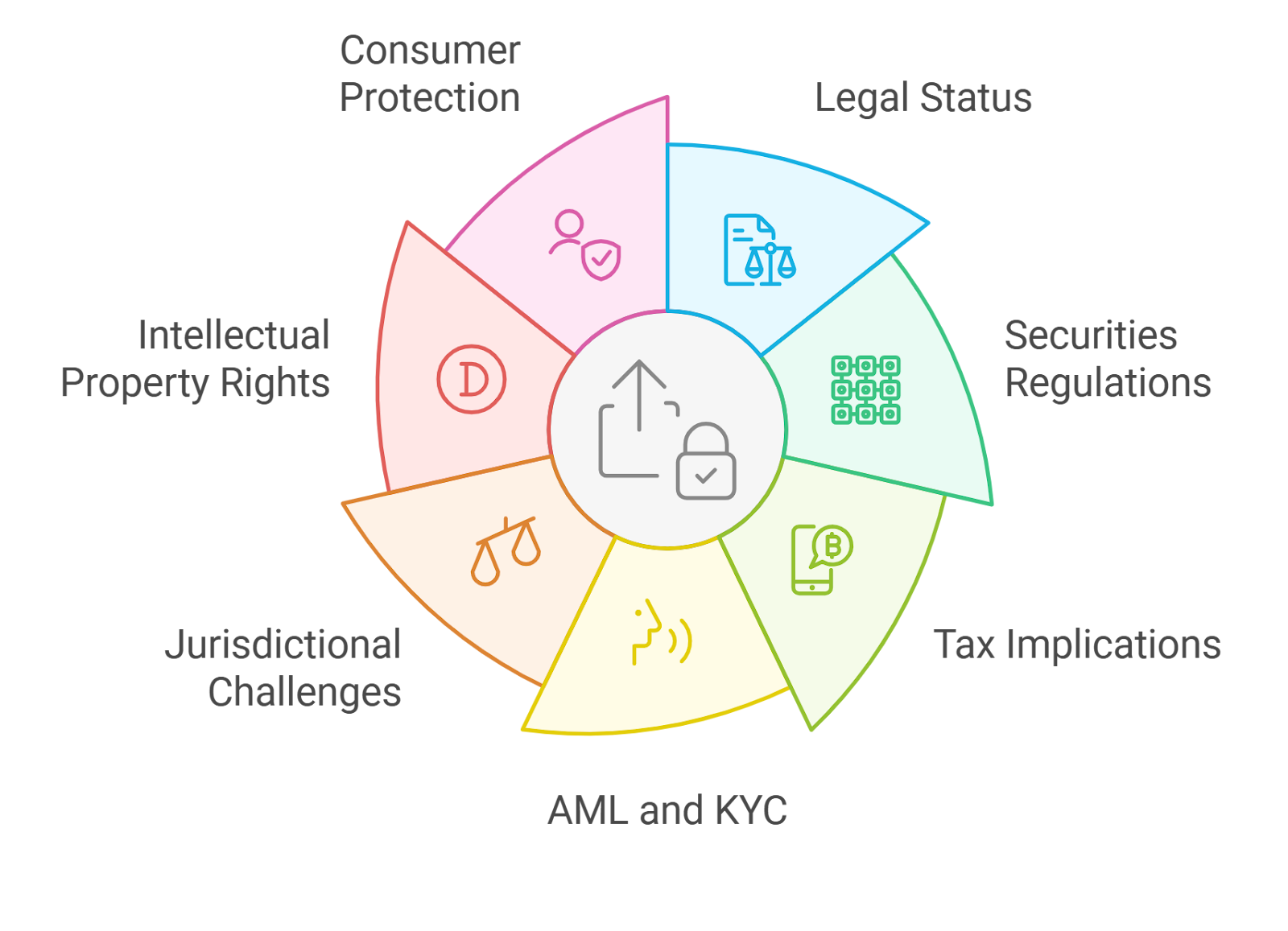
Assess DAO Governance Needs and Privacy Requirements: Begin by evaluating the specific governance processes and privacy expectations of your DAO. Determine which decisions require private voting and establish clear objectives for confidentiality.
-
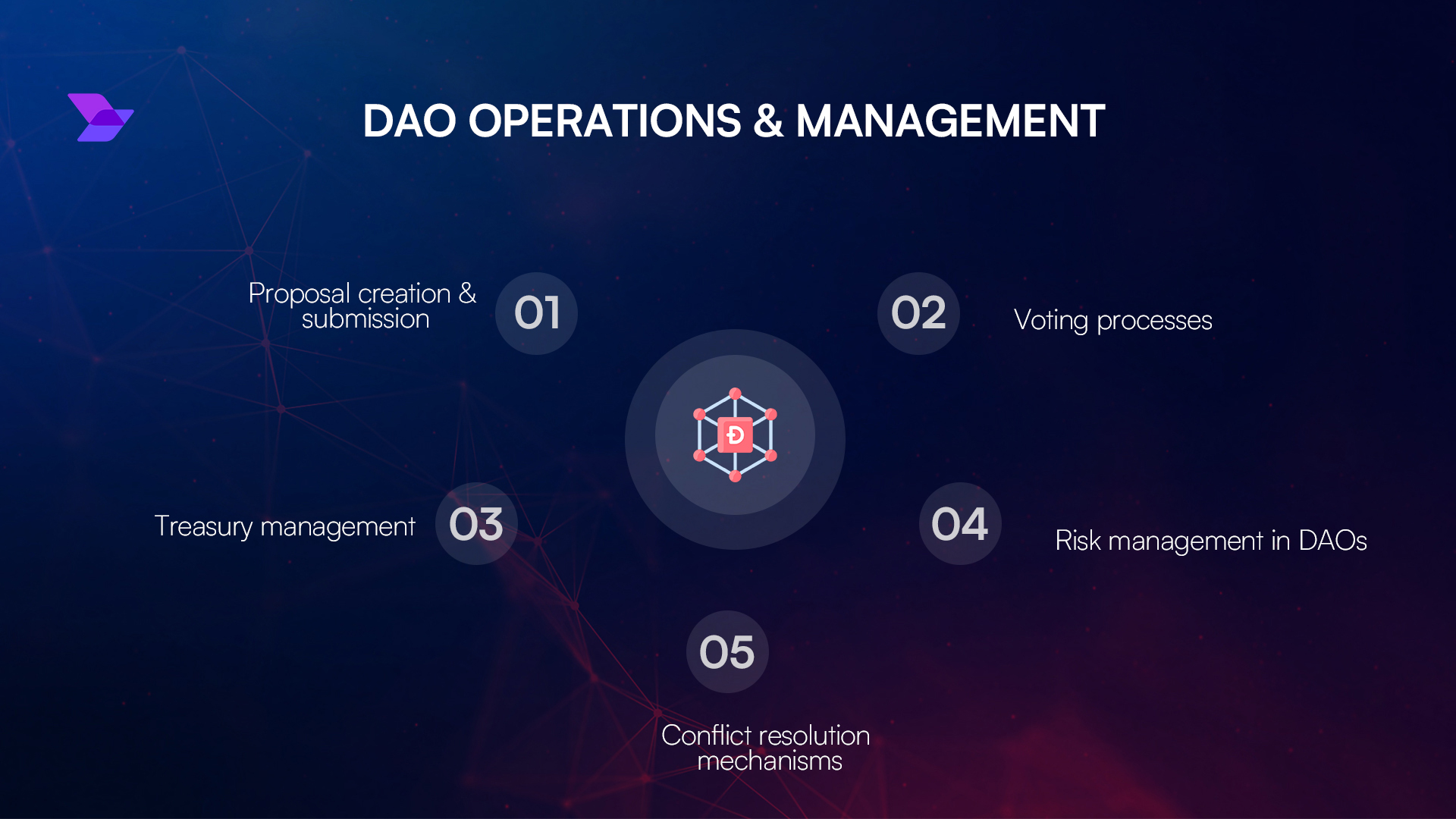
Select Proven Private Voting Mechanisms: Choose established cryptographic protocols such as zero-knowledge proofs (ZKPs), threshold encryption, or secure multi-party computation (MPC) to ensure both privacy and verifiability in your voting process.
-
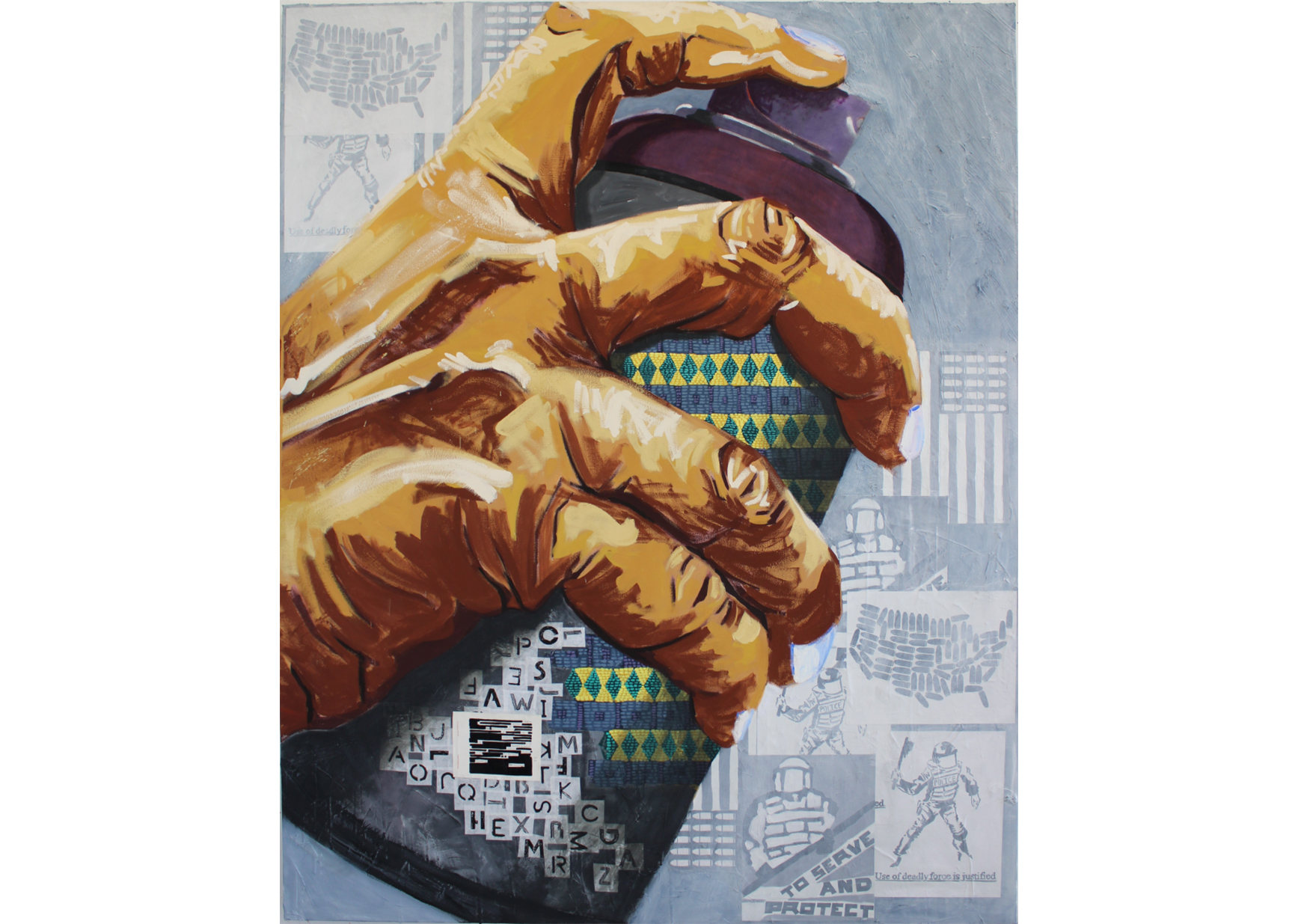
Leverage Trusted Platforms with Private Voting Features: Utilize reputable platforms like Snapshot with shielded voting (powered by Shutter Network) or Aragon’s private voting integrations with Aztec for streamlined implementation and community trust.
-

Ensure End-to-End Verifiability: Implement mechanisms that allow members to independently verify that votes are counted correctly, such as cryptographic proofs or transparent audit trails, without exposing individual choices.
-
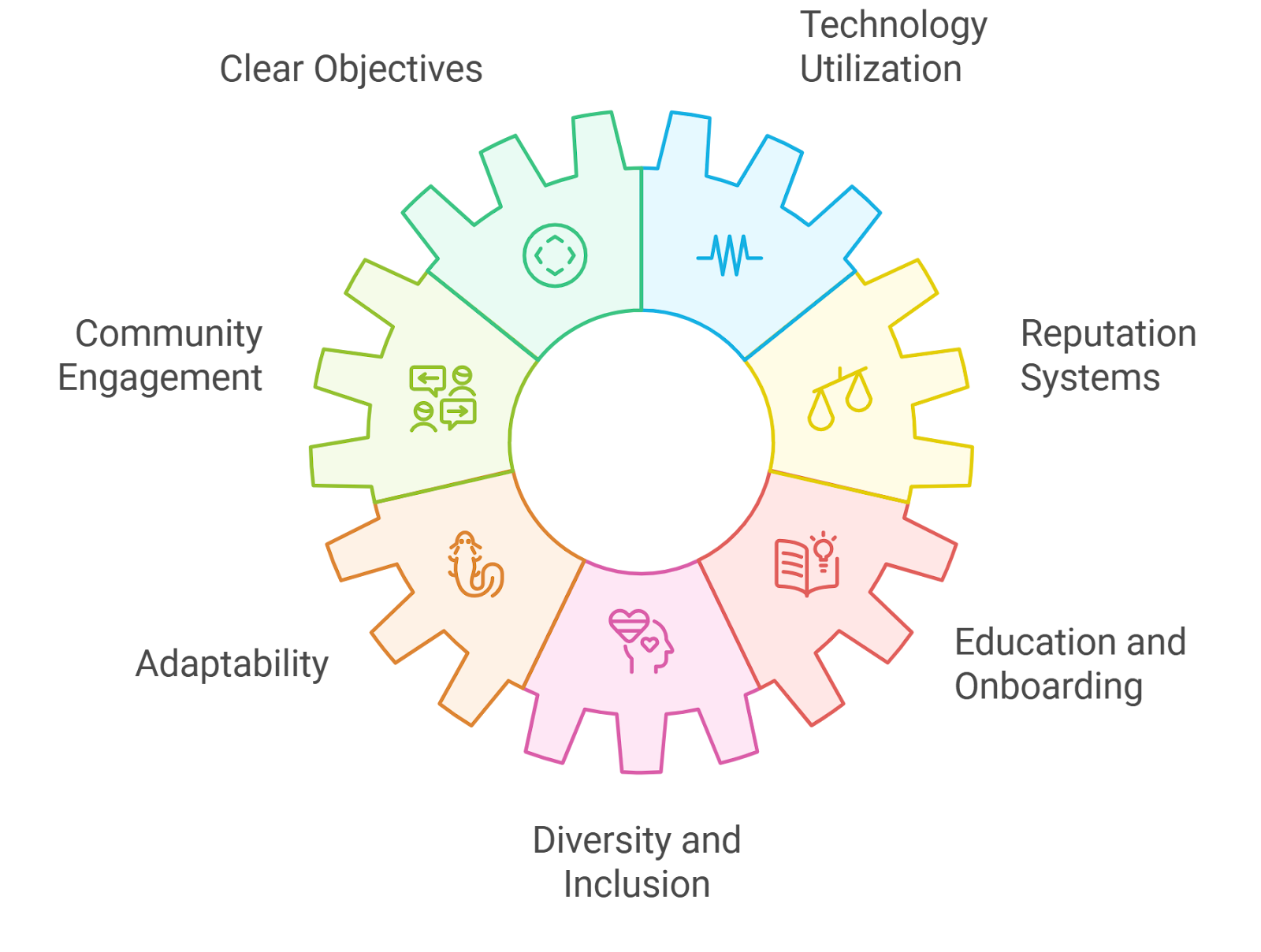
Balance Transparency and Privacy: Define clear policies on when to use private voting versus transparent voting, ensuring accountability for critical decisions while protecting member privacy where appropriate.
-
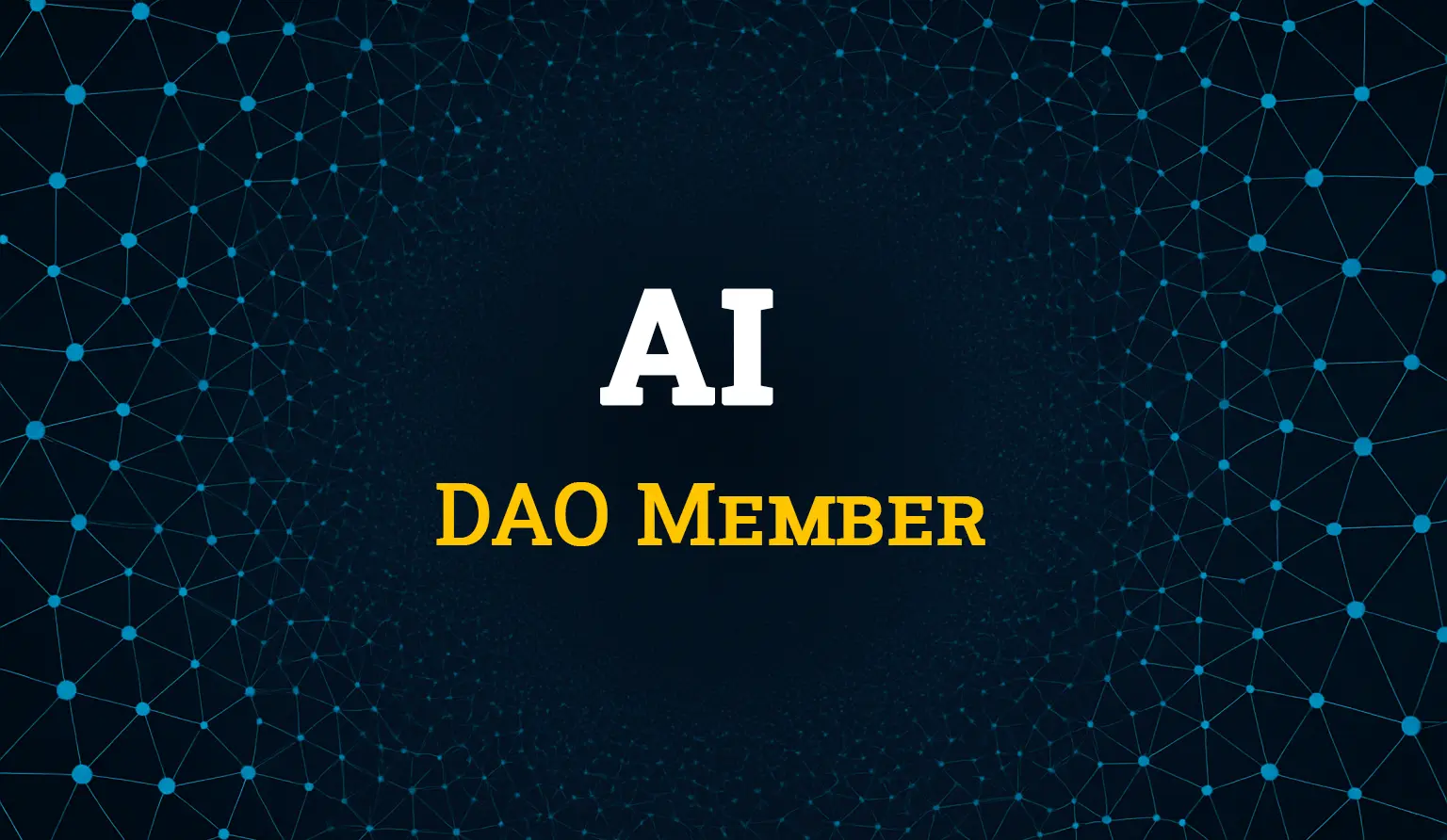
Educate and Onboard Members: Provide comprehensive resources and training to help members understand the benefits, limitations, and usage of private voting mechanisms within your DAO.
-
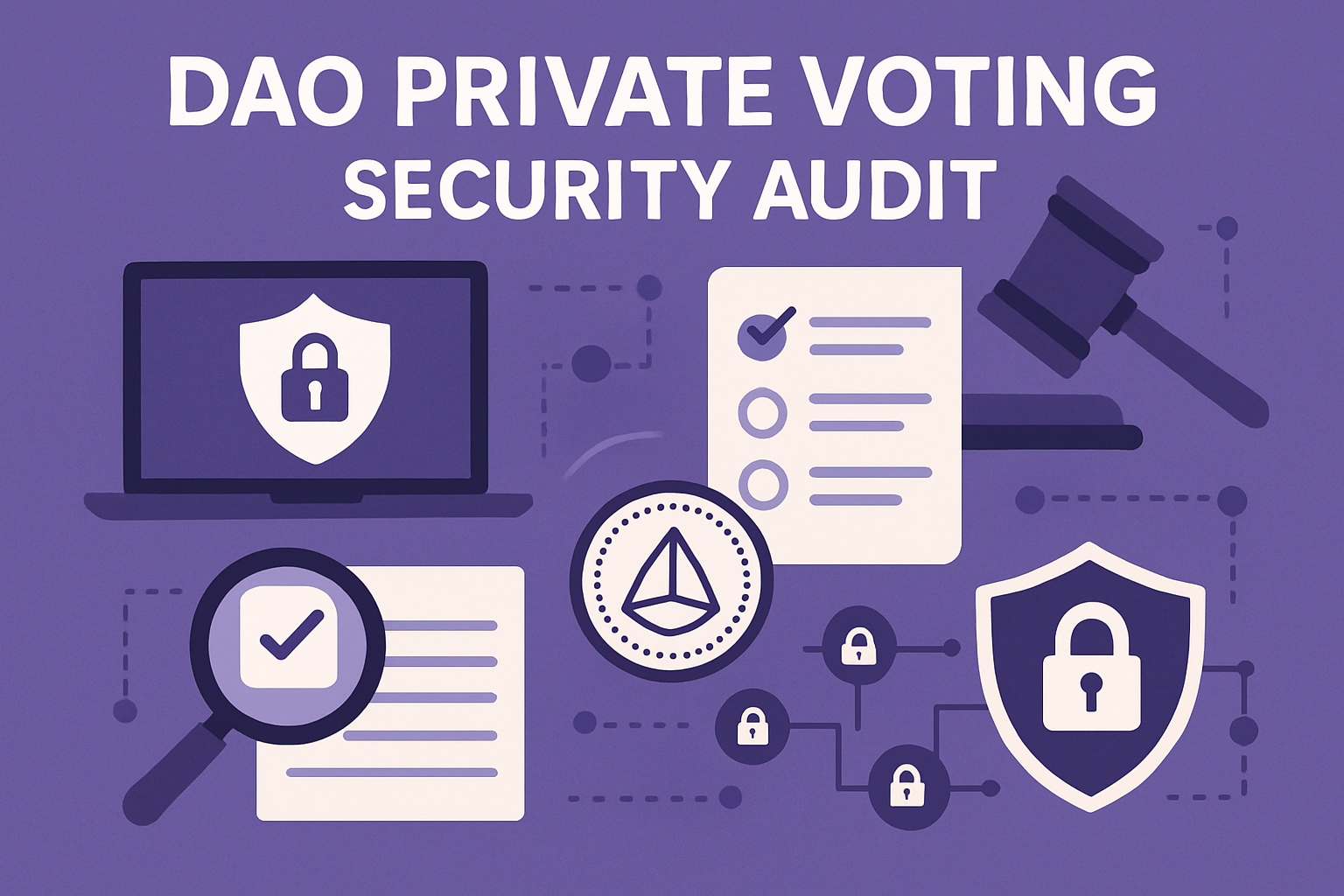
Regularly Audit and Update Security Measures: Periodically review and upgrade cryptographic implementations and operational procedures to address evolving threats and maintain robust privacy protections.
- Assess the sensitivity of proposals: Not all votes require the same level of privacy. Critical or controversial decisions benefit most from confidential voting.
- Prioritize verifiability: Choose systems that allow members to independently verify the integrity of the vote tally without revealing individual choices.
- Invest in user experience: Complex privacy tools must be accessible to all members, not just cryptography experts, to ensure broad participation.
- Audit cryptographic implementations: Regular security audits are essential to prevent subtle leaks or implementation flaws that could undermine privacy guarantees.
The trajectory is clear: as DAOs mature, the expectation for both privacy and accountability will only intensify. Projects that fail to address these needs risk declining engagement or reputational harm from governance attacks.
“The future of decentralized governance hinges on making privacy a default, not an afterthought. “
Frequently Asked Questions
The adoption of anonymous voting blockchain solutions is more than a technical upgrade – it’s a cultural shift toward more resilient, inclusive, and secure governance. As cryptographic voting DAOs gain traction, expect continued innovation at the intersection of privacy technology and collective decision-making. For developers, founders, and participants alike, now is the time to prioritize secure governance DAOs that protect every member’s voice while upholding the transparency that makes decentralized organizations so powerful.
